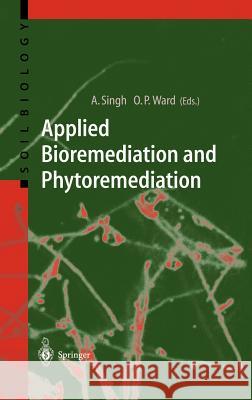Applied Bioremediation and Phytoremediation » książka
Applied Bioremediation and Phytoremediation
ISBN-13: 9783540210207 / Angielski / Twarda / 2004 / 281 str.
The huge expansion of the chemical and petroleum industries in the twentieth century has resulted in the production of a vast array of chem ical compounds and materials that have transformed our lives. The associated large-scale manufacturing, processing and handling activi ties have caused a serious deterioration in environmental quality and created threats to human health. These negative impacts have led to responses and regulations requiring remedial action in support of envi ronmental sustainability. of biotechnological methods through bioremediation, Application has gained prominence as an option for soil remediation methods. Bioremediation is a multidisciplinary approach where biologists, chem ists, soil scientists and engineers work as team to develop and imple ment remediation processes. Bioremediation has now been used successfully to remediate many petroleum-contaminated sites. However, there are as yet no commercial technologies commonly used to reme diate the most recalcitrant contaminants. Nevertheless, bioremediation is a rapidly advancing field and new bio-based remedial technologies are continuing to emerge."











